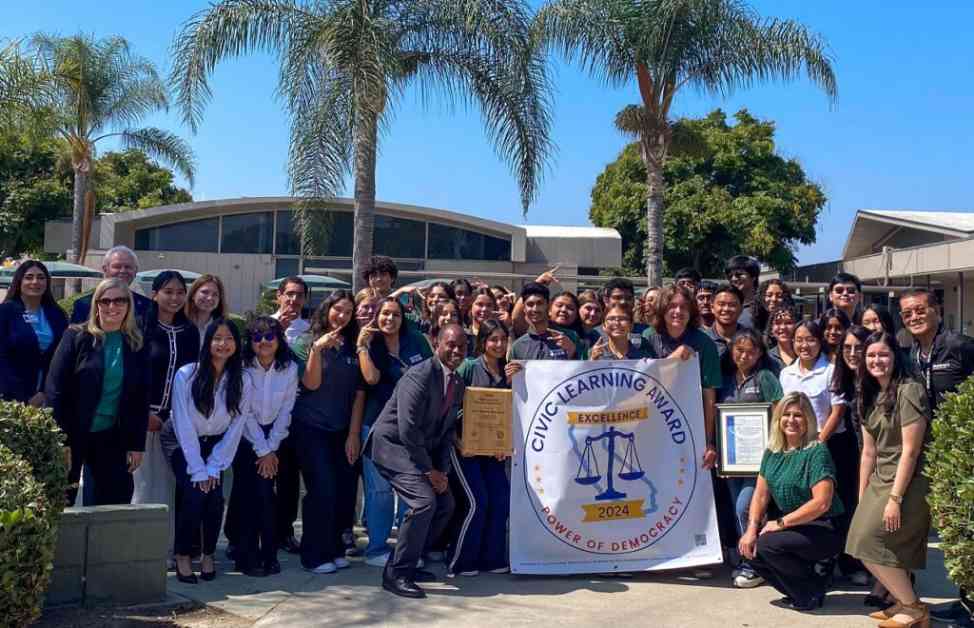State Superintendent of Instruction Tony Thurmond and Chief Justice Patricia Guerrero recently recognized Kennedy High in Anaheim for its exceptional civic learning programs. The school’s efforts to integrate civic engagement into its curriculum have been truly commendable. The State Seal of Civic Engagement, which was approved by the State Board of Education in 2020, represents a significant step forward in nurturing students who are not just academically proficient but also actively engaged in their communities and socially aware.
However, it is disappointing that the College and Career Indicators (CCI) on the California School Dashboard have not included this important seal until now. The State Board of Education has now taken the initiative to request the California Department of Education to integrate the Seal of Civic Engagement into the CCI. This move aims to motivate schools to prioritize civic responsibility, make education more relevant, and amplify student voices. By doing so, schools can instill a sense of active citizenship among students, connect learning to real-world challenges, and inspire meaningful community engagement.
The Seal of Civic Engagement, when affixed to a student’s diploma or certificate of completion, should be given the recognition it deserves alongside other key indicators like the State Seal of Biliteracy. Schools will now be held to a higher standard of civic instruction, with criteria including a minimum GPA in social science courses and the completion of a civic engagement project. This addition to the California School Dashboard not only acknowledges student achievements but also serves as a catalyst for broader educational reforms that emphasize civic education.
The incorporation of the California Seal of Civic Engagement in the school dashboard will encourage a shift towards student-centered instructional models. By focusing on elevating student voice and agency, schools will create opportunities for students to take on leadership roles, engage in community projects, and participate in civic dialogue. This approach aims to give students a sense of empowerment, encouraging them to vote and actively participate in democratic processes.
Research conducted at institutions like UCLA and USC has highlighted the connection between civic engagement and student well-being. By integrating service learning into the curriculum, schools can offer more holistic learning experiences that combine academic content with community service. Engaging in civic projects can provide students with a sense of purpose and belonging, positively impacting their mental health.
The California Seal of Civic Engagement presents an exciting opportunity to link civic engagement with career exploration. Schools can align civic projects with career pathway programs, allowing students to gain hands-on experience in fields they are interested in. This alignment not only makes learning more relevant but also exposes students to potential career opportunities early on, preparing them for future educational and professional endeavors.
Moreover, the seal encourages schools to design project-based learning experiences that address pressing societal issues such as climate change, affordable housing, and mental health. By engaging in civic projects that tackle these challenges, students develop critical thinking skills and learn to implement action plans. This hands-on approach makes learning more meaningful and applicable to real-world contexts, fostering a sense of responsibility and active citizenship among students.
In conclusion, by emphasizing civic education in schools, we can nurture a generation of socially conscious and engaged individuals who are prepared to tackle the challenges of the modern world. The inclusion of the Seal of Civic Engagement in the state’s accountability system is a crucial step towards building a more equitable and empowered future for all.




















